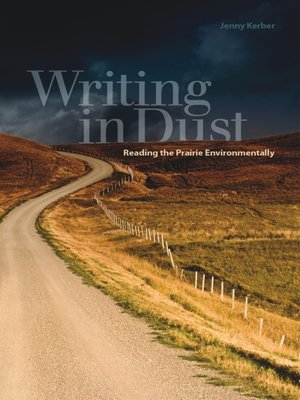Writing in Dust
ebook ∣ Reading the Prairie Environmentally · Environmental Humanities
By Jenny Kerber

Sign up to save your library
With an OverDrive account, you can save your favorite libraries for at-a-glance information about availability. Find out more about OverDrive accounts.
Find this title in Libby, the library reading app by OverDrive.



Search for a digital library with this title
Title found at these libraries:
| Library Name | Distance |
|---|---|
| Loading... |
Writing in Dust is the first sustained study of prairie Canadian literature from an ecocritical perspective. Drawing on recent scholarship in environmental theory and criticism, Jenny Kerber considers the ways in which prairie writers have negotiated processes of ecological and cultural change in the region from the early twentieth century to the present.
The book begins by proposing that current environmental problems in the prairie region can be understood by examining the longstanding tendency to describe its diverse terrain in dualistic terms—either as an idyllic natural space or as an irredeemable wasteland. It inquires into the sources of stories that naturalize ecological prosperity and hardship and investigates how such narratives have been deployed from the period of colonial settlement to the present. It then considers the ways in which works by both canonical and more recent writers ranging from Robert Stead, W.O. Mitchell, and Margaret Laurence to Tim Lilburn, Louise Halfe, and Thomas King consistently challenge these dualistic landscape myths, proposing alternatives for the development of more ecologically just and sustainable relationships among people and between humans and their physical environments.
Writing in Dust asserts that "reading environmentally" can help us to better understand a host of issues facing prairie inhabitants today, including the environmental impacts of industrial agriculture, resource extraction, climate change, shifting urban–rural demographics, the significance of Indigenous understandings of human–nature relationships, and the complex, often contradictory meanings of eco-cultural metaphors of alien/invasiveness, hybridity, and wildness.







